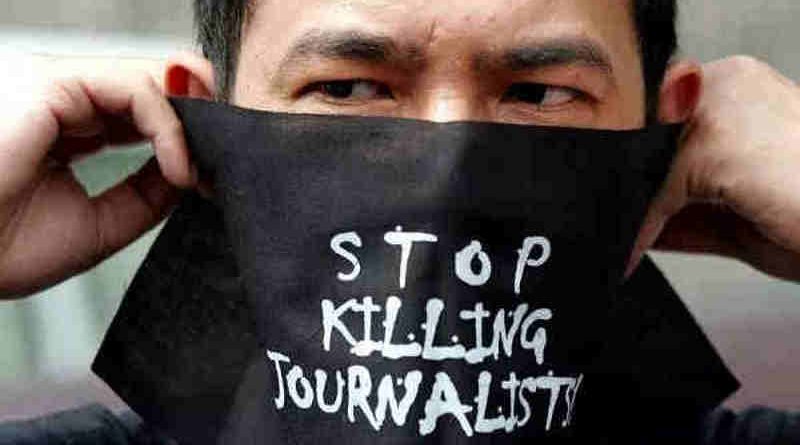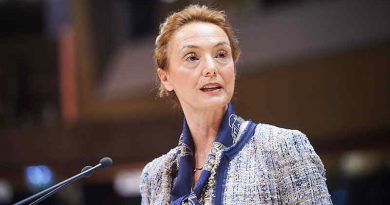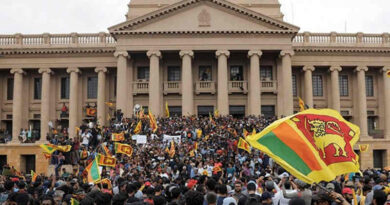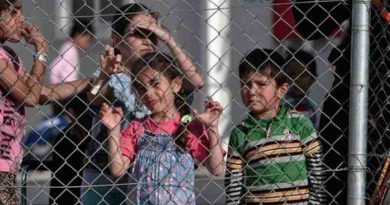Iranian Authorities Are Threatening Journalists: UN Experts

A group of UN human rights experts* have once again voiced alarm at the targeting of journalists working for the BBC and other broadcasters, and their families by Iranian authorities.
“Journalists working for the BBC Persian Service and other Farsi-language news outlets outside Iran have faced threats, criminal investigations, unlawful surveillance, freezing of assets, defamation, and harassment by Iranian authorities. Several journalists have also been targeted for going public about the harassment and seeking protection from the UN,” the experts said on Wednesday.
“Their families residing in Iran have faced harassment and intimidation by Iranian authorities. In some cases, family members were deprived of their liberty and held in degrading conditions, and ordered to tell their relatives to stop working for the BBC.”
These acts of harassment and intimidation have allegedly intensified after the BBC reporting of the street protests that took place across the country, beginning in November 2019.
“Reports also indicate a pattern of gender-based harassment, targeting women journalists since 2009, and including the dissemination of false stories, spreading of rumours and slander, usually with highly misogynistic contents and threats of sexual violence,” they said.
BBC Persian Service journalists have also been the subject of death threats, allegedly by Iranian authorities. In February 2020, journalist Rana Rahimpour reportedly received a written message threatening that she, her children, her husband and her elderly parents would be assassinated within a month.
The message also said that Ms. Rahimpour would be the first employee of the BBC to be killed, and that, after her assassination, it will be the turn of other BBC Persian Service employees.
“These allegations are extremely concerning and if confirmed, would indicate that the Iranian authorities are prepared to use force extra-territorially, in violation of international law. Harassment, surveillance, death threats against journalists, within and outside domestic boundaries violate international human right law, including the right to physical integrity, the right to life and the right to freedom of expression.
“When these acts are conducted extra-territorially, as with BBC Persian Services, these acts violate international law regulating the use of force in times of peace. These ultimately constitute serious threats to global security and thus demand strong reactions on the part of the Governments of the countries where BBC Persian Service journalists reside,” they said.
“We reiterate our earlier calls to the Iranian Government to cease the intimidation, harassment and threats, including death threats, against BBC and other journalists working outside Iran for Farsi-language news outlets, as well as reprisals against their family members in Iran, which may constitute multiple violations of Iran’s international human rights obligations under international law.
“We call on the States to immediately take action in implementing safeguards to protect the integrity of journalists, their families and their profession,” they said.
The human rights experts urged all States where these journalists are residing, such as the United Kingdom, to protect their personal integrity, and that of their families and their profession. “Governments must uphold their responsibility to protect and duty to warn,” they said.
“Governments must respect and ensure the right to life and to reasonably foreseeable threats and situations that can result in loss of life.”
* The UN experts: Ms Agnes Callamard, Special Rapporteur on extrajudicial, summary or arbitrary executions; Mr Javaid Rehman, Special Rapporteur on the situation of human rights in the Islamic Republic of Iran; Mr David Kaye, Special Rapporteur on the promotion and protection of the right to freedom of opinion and expression and Mr Michel Forst, Special Rapporteur on the situation of human rights defenders.
The Special Rapporteurs and Working Groups are part of what is known as the Special Procedures of the Human Rights Council. Special Procedures, the largest body of independent experts in the UN Human Rights system, is the general name of the Council’s independent fact-finding and monitoring mechanisms that address either specific country situations or thematic issues in all parts of the world.
Special Procedures’ experts work on a voluntary basis; they are not UN staff and do not receive a salary for their work. They are independent from any government or organization and serve in their individual capacity.





